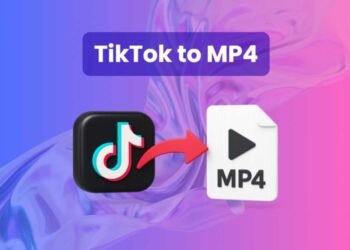In today’s fast-paced healthcare and administrative environments, efficiency and accuracy are paramount. Managing appointments, sending reminders, and facilitating communication among parties can pose significant challenges. DocVA assistants step in to simplify these tasks. The question remains: Do they effectively automate scheduling and reminders, or is it another tech trend?
Virtual Medical assistants aim to ease healthcare providers’ administrative workload by handling appointment scheduling, reminder notifications, and patient follow-ups. Their automation capabilities are underpinned by algorithms seamlessly integrated with healthcare systems.
The key to their automation prowess lies in their ability to sync with health record (EHR) systems. By accessing real-time data, these assistants can identify time slots, patient histories, and crucial details required for scheduling without manual input errors.
A standout feature of VMA’s is their adeptness at managing scheduling scenarios, such as provider appointments that involve coordination among multiple healthcare professionals.
By examining the availability and desired outcomes, the assistant can suggest the times to ensure that patient care remains uninterrupted.
Another benefit of using VMA’s is their integration with existing calendar systems. These assistants can connect with calendars like Google Calendar, Outlook, or iCal, making them versatile and easy to implement in different organizational environments. This syncing feature guarantees that appointments are automatically updated across platforms, minimizing the chances of bookings or scheduling conflicts.
Apart from managing schedules, DocVA assistants shine in handling reminders. Missed appointments can impact the well-being and financial health of healthcare facilities. By automating reminders, these assistants help reduce no-show rates by sending reminders through SMS, email, and phone to ensure patients stay informed about their appointments.
Furthermore, personalizing communication is a strength of DocVA assistants. They can customize reminders to align with patient preferences and requirements. For instance, some patients may prefer receiving reminders two days before their appointments, while others might need alerts leading up to their scheduled visits. The ability to personalize these interactions contributes to enhancing patient engagement and adherence.
DocVA assistants are adept at handling situations where patients need to change or cancel appointments. By offering patients user interfaces, like text commands or easy-to-use web portals, these assistants make it simple to modify appointments. They can instantly update the scheduling system to ensure no time slots go unused and other patients can be accommodated promptly.
Another helpful feature of the DocVA assistants is their ability to manage follow-ups. After a patient’s visit, timely follow-ups are essential for monitoring progress and ensuring adherence to treatment plans. The assistants can automate follow-up appointment scheduling and send reminders for these visits, making it convenient for healthcare providers and patients to focus on their healthcare objectives.
In today’s telehealth age, the role of DocVA assistants has become more crucial. The rise of consultations due to the COVID-19 pandemic has emphasized the importance of scheduling and reminders in maintaining continuity of care. DocVA assistants excel in managing telehealth appointments, from scheduling video calls to sending reminders with login details or instructions, bridging the gap between in-person visits and modern telehealth services. Furthermore, it’s essential to pay attention to the capabilities of DocVA assistants. By studying the patterns of scheduling responses from patients and rates of missed appointments, these assistants offer insights for improving the management of practices. Healthcare providers can use this information to tune their appointment strategies, allocate resources efficiently, and boost patient satisfaction.
From a patient’s viewpoint, the automation facilitated by DocVA assistants simplifies their healthcare journey. Patients are likelier to stick to their schedules and actively participate in their healthcare journey through timely communication and convenient appointment management. This leads to health outcomes and an overall positive experience for patients.
Nevertheless, it’s essential to acknowledge that the effectiveness of any automated tool like DocVA assistants hinges on implementation and integration with existing systems. Healthcare facilities must invest time and resources into ensuring these assistants are set up correctly and that staff members receive training in using them. Regular updates and maintenance are crucial to ensure the system’s operation and incorporate any features or enhancements.
In conclusion, DocVA assistants have the potential to automate appointment scheduling and reminder management. By utilizing algorithms and seamless integration with healthcare systems, these assistants can help reduce administrative tasks, increase patient engagement, and improve overall practice efficiency.
As technology progresses, we can anticipate improvements in how these assistants function, leading to efficient healthcare administration. Healthcare facilities must adopt and use these tools to enhance patient care and outcomes over time. DocVA assistants should be seen as a luxury and as components of modern healthcare systems. With their advantages and capabilities, DocVA assistants have the potential to transform scheduling and reminder management in the healthcare sector. Let’s keep exploring and leveraging this technology to benefit patient care. Then, treating this topic as concluded, let’s see it as a journey toward enhancing healthcare efficiency through automation. Stay informed about developments. Understand how these assistants can further elevate your practice!












